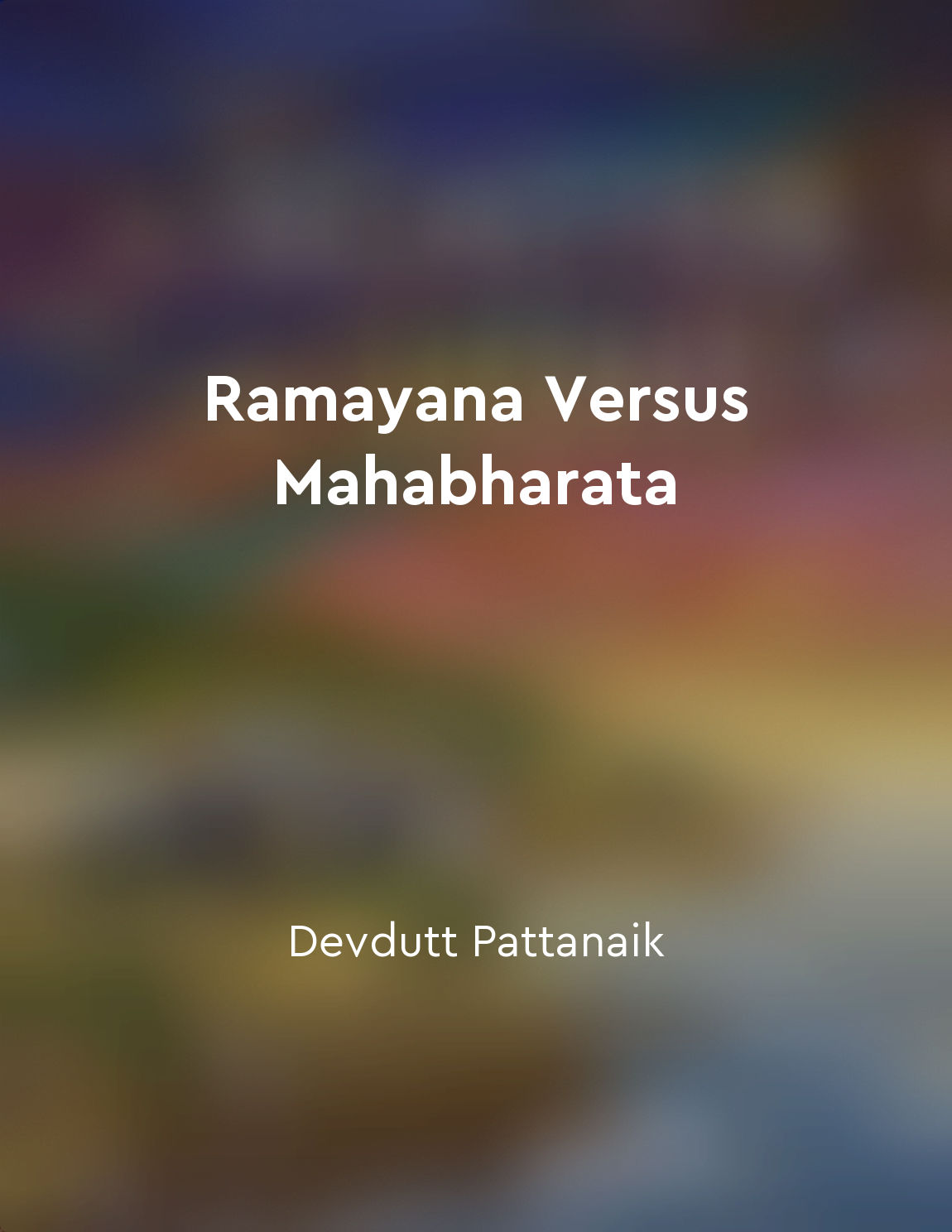Ramayana's Rama Rajya is ideal rule, Mahabharata's Yudhishthira's Rajasuya is kingdom celebration from "summary" of Ramayana Versus Mahabharata by Devdutt Pattanaik
In the Ramayana, Rama Rajya is portrayed as the epitome of ideal rule, where the king is righteous and just, and the kingdom flourishes under his benevolent leadership. Rama is depicted as the perfect king, upholding dharma and ensuring the well-being of his subjects. His reign is marked by peace, prosperity, and harmony, making it an ideal society where everyone is content and fulfilled. On the other hand, the Mahabharata presents Yudhishthira's Rajasuya as a grand celebration of the kingdom's power and glory. The Rajasuya is a ceremonial event where Yudhishthira asserts his dominance and authority over other kings, showcasing the might and prestige of his kingdom. It is a display of pomp and pageantry, meant to impress and awe others with the splendor and opulence of his rule. While Rama Rajya focuses on moral values and ethical principles, emphasizing the importance of righteousness and justice in governance, Yudhishthira's Rajasuya highlights power dynamics and political supremacy. The two concepts represent different aspects of kingship – one rooted in virtue and fairness, the other in strength and dominance. Rama's rule is characterized by humility, compassion, and selflessness, while Yudhishthira's celebration is marked by grandeur, ambition, and assertiveness. The contrast between the two reflects the different approaches to kingship and leadership, with Rama embodying the ideal of a just and noble ruler, and Yudhishthira embodying the ambition and desire for power that often accompany kingship.- The comparison between Rama Rajya and Yudhishthira's Rajasuya highlights the complexity of kingship and the various dimensions of rule. While Rama's reign is seen as the ideal to strive for, Yudhishthira's celebration serves as a reminder of the challenges and temptations that come with power. Both concepts offer valuable insights into the nature of leadership and governance, showcasing the different paths that rulers can take in their quest for authority and influence.
Similar Posts

Play to people's fantasies
To wield power over others, you must understand a fundamental truth: people are driven by their deepest desires and fantasies. ...

Importance of dharma and duty
In today's age of cynicism and moral relativism, the ancient concept of dharma and duty may seem outdated and irrelevant. Howev...
The departure of Lord Krishna from the mortal world
Lord Krishna's departure from the mortal world is a significant event in the epic of Mahabharat. After the great Kurukshetra wa...
The great Kurukshetra war
The great Kurukshetra war was a pivotal event in the epic poem Mahabharat. The war was fought between the Pandavas and the Kaur...

Change is inevitable but growth is optional
Change, my dear reader, is a force of nature that sweeps through our lives with the inevitability of the tides. It is an ever-p...
The concept of dharma held societal structure together
Dharma, in the Vedic period of ancient India, played a crucial role in maintaining the societal structure. It was a concept tha...
Return
The concept of return in the epic Ramayan holds a profound significance that resonates throughout the narrative. It is not mere...
The death of Dushasana and Draupadi's justice
Dushasana, the wicked Kaurava prince, met his end at the hands of Bhima during the great Kurukshetra war. Bhima vowed to kill D...


